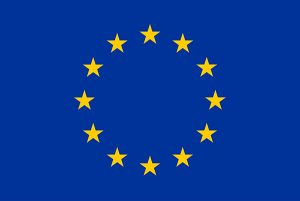In the final episode of the DIAL podcast we’re looking at what’s been learned from DIAL projects about how and when inequality manifests in our lives and what its longer term consequences might be. We’re joined by Elina Kilpi-Jakonen from the University of Turku in Finland. Elina is the Scientific Coordinator for DIAL and, as … Read more
In Episode 5 of Series 4 of the DIAL Podcast we’re in conversation with Andreas Peichl, Professor of Macroeconomics and Public Finance at the University of Munich and Principal Investigator of a DIAL project looking at the impact of childhood circumstances on individual outcomes over the life-course (IMCHILD).
In Episode 4 of Series 4 we’re talking to Professor Sakari Lemola from the University of Bielefeld and formerly from the University of Warwick. Sakari is one of the Principal Investigators of the DIAL project PremLife, which has been looking at what factors can provide protection and increase resilience for preterm children’s life course outcomes. Transcript Christine Garrington … Read more
In Episode 3 of Series 4 of the DIAL Podcast, we are in discussion with Richard Blundell. Richard is the Ricardo Professor of Political Economy at UCL, director of the ESRC Centre for the Microeconomic Analysis of Public Policy at the Institute for Fiscal Studies and the principal investigator of a DIAL project looking at … Read more
by Sreevidya Ayyar, Uta Bolt, Eric French, Jamie Hentall MacCuish, Cormac O’Dea The children of rich families tend to go to better quality schools, have higher cognitive skills, and complete more years of schooling. This blog exploits unique data from the National Child Development study to determine these early childhood factors go on to have … Read more
In Episode 2 of Series 4 of the DIAL Podcast, we are in discussion with Professor Hans van Kippersluis from the Erasmus University in Rotterdam. Hans, Professor of Applied Economics, is the Principal Investigator on the DIAL project, Gene Environment Interplay in the Generation of Health and Education Inequalities, which has used innovative methods and data … Read more
by Alexander Ludwig and colleagues This blog was first published by VOXeu. After the outbreak of the COVID-19 crisis in the spring of 2020, politicians around the world closed schools and child-care centers together with businesses in an effort to contain the virus. According to the World Bank, around 1.6 billion school children were affected … Read more
In Episode 1 of Series 4 of the DIAL Podcast we’re in discussion with Professor Kjell Salvanes and Dr Helen Wareham to talk about the impact of inequality on the lives of children. Kjell is the Principal Investigator on Growing up Unequal? The Origins, Dynamics and Lifecycle Consequences of Childhood Inequalities while Helen is a Research … Read more
In Episode 16 of Series 3 of the DIAL Podcast we’re discussing ability grouping in UK primary schools and how it affects children’s enjoyment of certain subjects. Our guest today is Queralt Capsada-Munsech from the University of Glasgow, who as part of DIAL’s LIFETRACK project has been looking at primary school children’s enjoyment of English and … Read more
by Maggie O’Neill, National University of Ireland, Galway The effects of COVID19 have challenged societies and healthcare systems across the world. And that impact has been especially pronounced for the working lives of nurses, who work in front-line roles, a new study reveals. “I feel that we’re still basically seen as the handmaidens of the … Read more
Dynamics of Inequality Across the Life-course (DIAL) is a multi-disciplinary research programme consisting of thirteen European projects. The projects examine the sources, structures and consequences of inequalities in contemporary societies. The programme is funded by NORFACE for the period 2017–2021.

This project has received funding from the European Union's Horizon 2020 research and innovation programme under grant agreement No 724363
Interested in learning more about the dynamics of inequality?
Sign up to stay informed about upcoming publications, conferences and workshops.
We will send you a quarterly report on activities across all research projects. For more information on how we store your data, please see our Privacy Policy.
